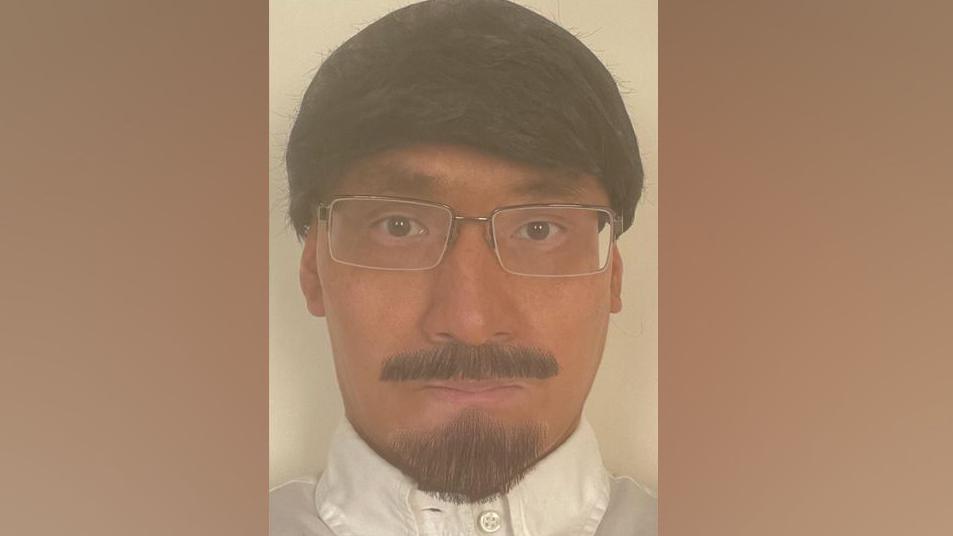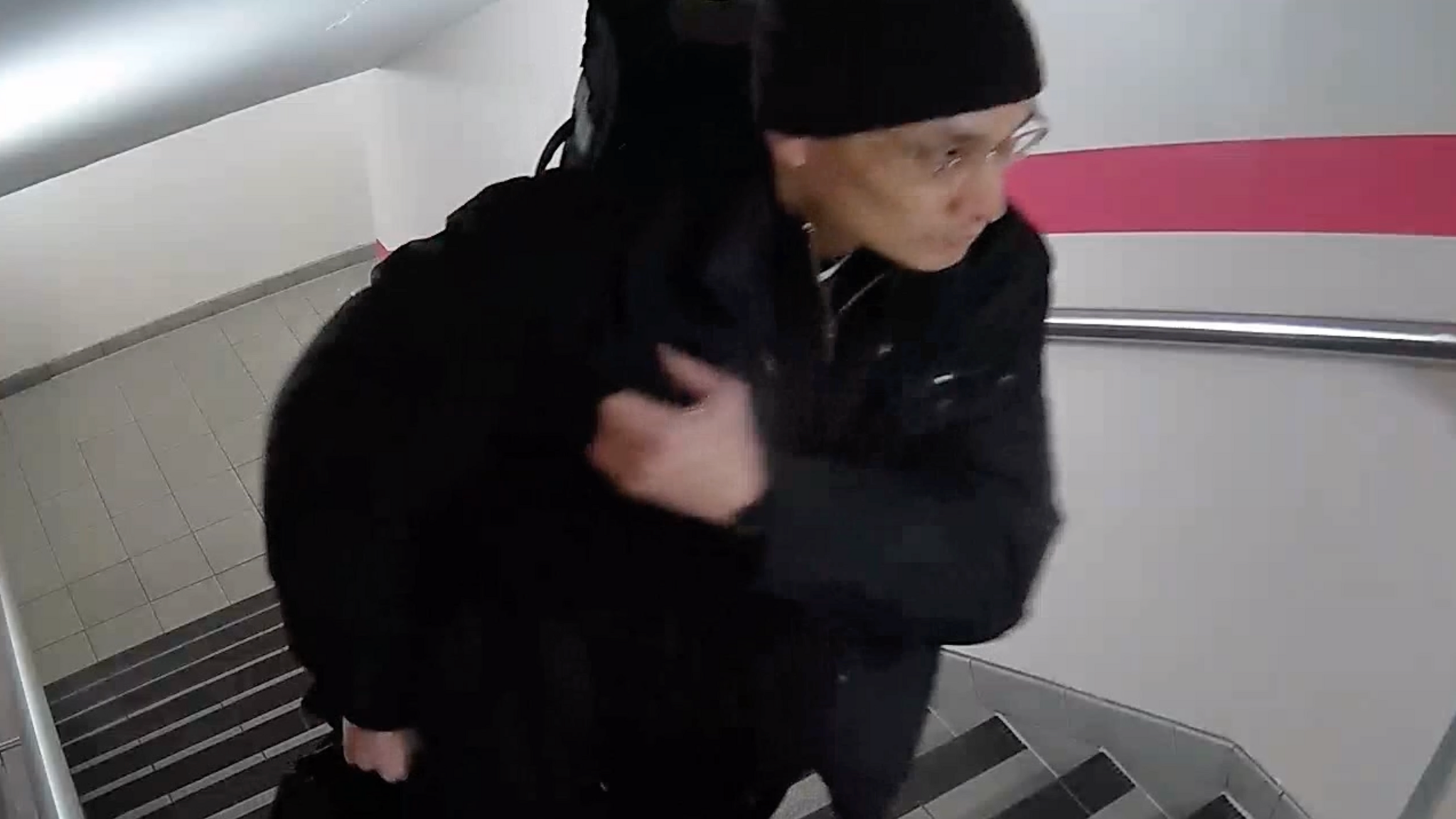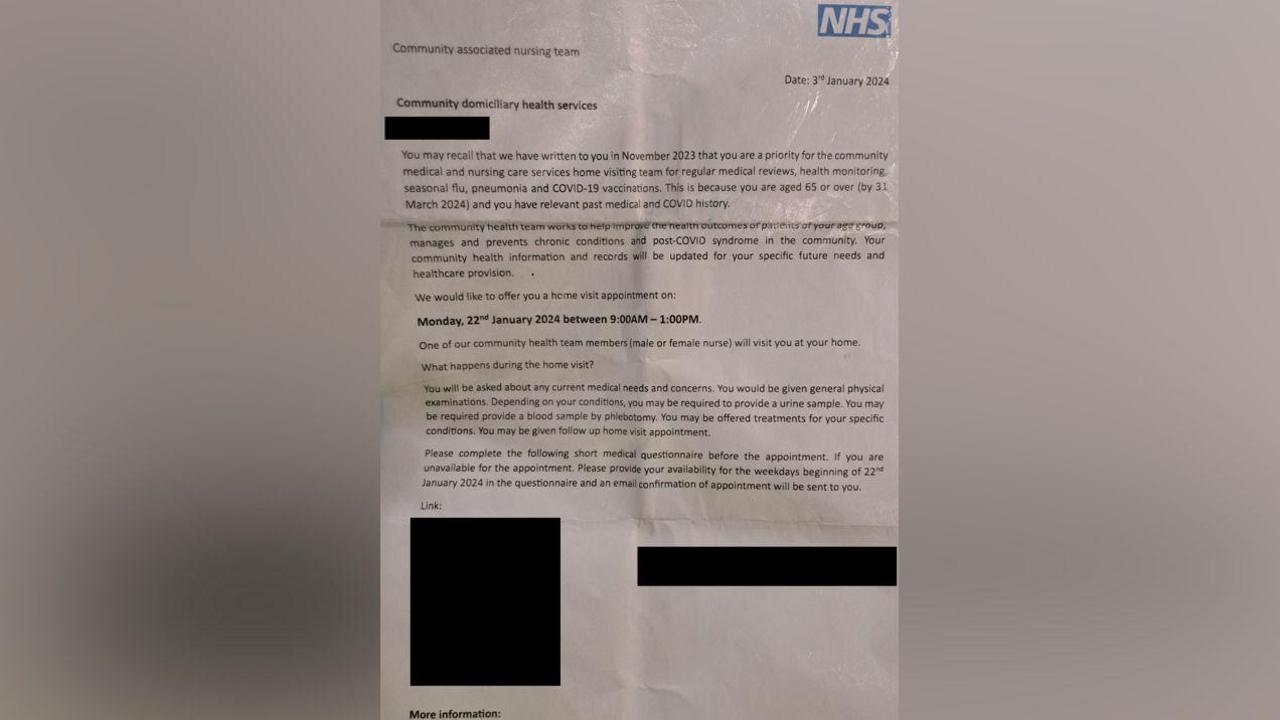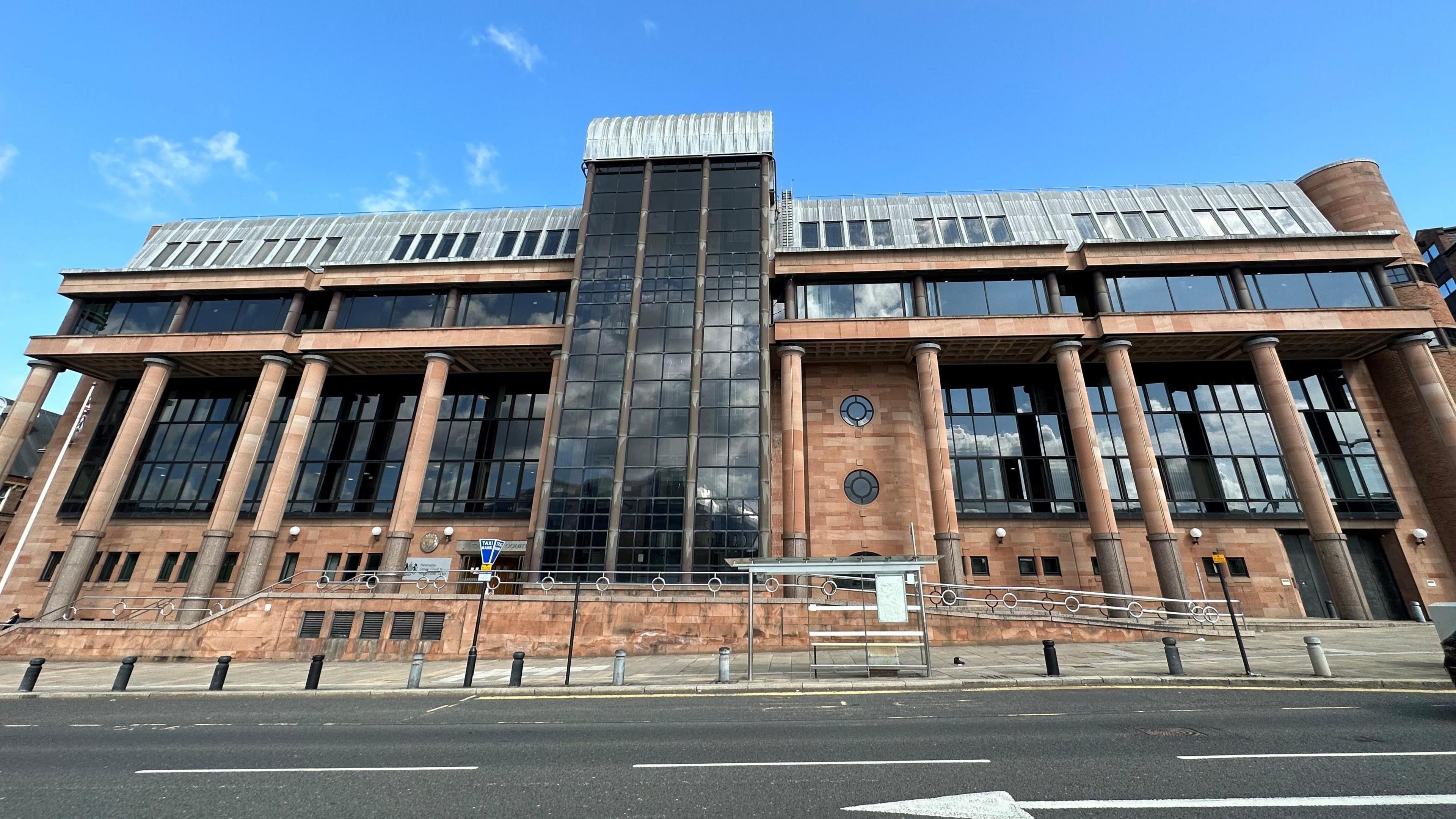Disguised GP poisoned man in will row, court hears

Thomas Kwan created a fake ID using the name Raj Patel which included a picture of himself wearing a false beard, moustache and wig
- Published
A GP disguised himself and injected his mother's partner with a poison in a row over an inheritance, a court has heard.
Thomas Kwan, 53, went to "extraordinary" lengths to plan and carry out the "audacious" attack by pretending he was giving a coronavirus booster jab to Patrick O'Hara, prosecutors told Newcastle Crown Court.
Mr O'Hara, 71, was lucky to survive after the toxin caused a "rare and life-threatening flesh-eating disease," the court heard.
Kwan admits injecting Mr O'Hara with a poison, but denies attempted murder, claiming he meant to inflict "no more than mild pain and discomfort".

Thomas Kwan checked into a hotel under a false name near his mother's home the night before the attack, jurors heard
He also denies wounding with intent but has admitted administering a noxious substance.
Opening the case, prosecutor Peter Makepeace KC said Kwan was a "respected and experienced" GP with an "encyclopaedic knowledge" of toxins who worked at the Happy House Surgery in Sunderland.
He was estranged from his mother, Wai King also known as Jenny Leung, having fallen out with her over her plans to leave her home in Newcastle to Mr O'Hara - her partner of more than 20 years.
"The effect of the will was that the property would not go to Ms Leung's children until after Mr O'Hara's death," Mr Makepeace said.
The prosecutor said Kwan was "obsessed with money and his anticipated inheritance".

Thomas Kwan disguised himself with a face mask when he went to his mother's home to inject her partner, a court heard
On 22 January, Kwan, who lived in Ingleby Barwick near Stockton, went to the couple's home on St Thomas' Street pretending to be a community nurse on a home visit to give a Covid-19 booster, the court heard.
Mr Makepeace said: "It was an audacious plan. It was a plan to murder a man in plain sight."
Kwan had previously sent the victim letters with a "chilling authenticity" purportedly from the NHS scheduling the visit so he was expected, the court heard.
Wearing a hat, surgical mask, gloves and tinted glasses and speaking in a broken English Asian accent, Kwan did a medical questionnaire and checked both Mr O'Hara's and Ms Leung's blood pressure before saying he would administer the jab, the court heard.

Thomas Kwan sent his victim a fake letter to set up a home visit on 22 January
As soon as he had been injected in his left arm, Mr O'Hara felt a "terrible pain" with Kwan hastily packing up his medical supplies and leaving, Mr Makepeace said.
As he left, Ms Yeung remarked that he was the same height as her son causing Mr O'Hara to become suspicious, the court heard.
The victim contacted his GP and the Freeman Hospital to ask about the visit.
Staff said they had never heard of the NHS organisation that arranged the visit so Mr O'Hara went to A&E at the Royal Victoria Infirmary.
After initially being baffled by his symptoms, doctors eventually diagnosed necrotising fasciitis - a "rare, life-threatening flesh-eating disease", the court heard.
Mr O'Hara had to have multiple surgeries to remove "very considerable portions" of his arm.
He remained in intensive care for several weeks and doctors failed to identify what the toxin was, the court heard.

Thomas Kwan is on trial for attempted murder at Newcastle Crown Court
Mr Makepeace said it was an "extraordinary" and "intricate" plot which included Kwan:
Forging NHS letters and creating a NHS ID under the name Raj Patel, including a picture of himself in a wig and fake facial hair
Taking a four-day holiday from work to carry out the attack
Putting fake number plates on his car to travel to Newcastle
Booking a hotel room under a fake name before the attack
Using an alternative SIM card to message the victim to confirm the appointment the day before
Creating a fake company to order toxic chemicals through
Mr Makepeace said while Kwan was on remand in prison awaiting trial, he told his wife he had "been stupid in not disposing of evidence prior to his arrest".
'Back-up plan'
The prosecutor said Kwan, a married father of one, had "a deeply disturbing" interest "bordering on obsession" with poisons and chemical toxins and "their use in killing human beings".
Searches of his Brading Court home revealed extensive research material, including:
Numerous chemicals including liquid mercury, thallium, sulphuric acid, arsenic and iodomethane stored in his garage, along with raw ingredients for making ricin, a highly potent toxin that can be fatal if inhaled, ingested or injected
Multiple digital books about poisons and criminal investigations, including manuals known to be used by terrorists
Recipes for toxic chemicals
A syringe containing the pesticide iodomethane, which could have caused Mr O'Hara's injuries and be difficult for doctors to detect
Almost 100 internet searches about iodomethane between 6 and 22 January
Many internet searches about ricin in the three weeks before the attack
A manual on chemical warfare found in his bedroom
Videos on how to create certain toxic substances, including iodomethane
Kwan also had a "back-up plan" and had created a letter from a fake charity offering Mr O'Hara free drinks and meals, the court heard.
He had also installed spyware on his mother's computer so he could monitor the couple's activity and watch them through the in-built camera, Mr Makepeace said.
The trial continues.
Follow BBC North East on X, external, Facebook, external, Nextdoor and Instagram, external. Send your story ideas to northeastandcumbria@bbc.co.uk.